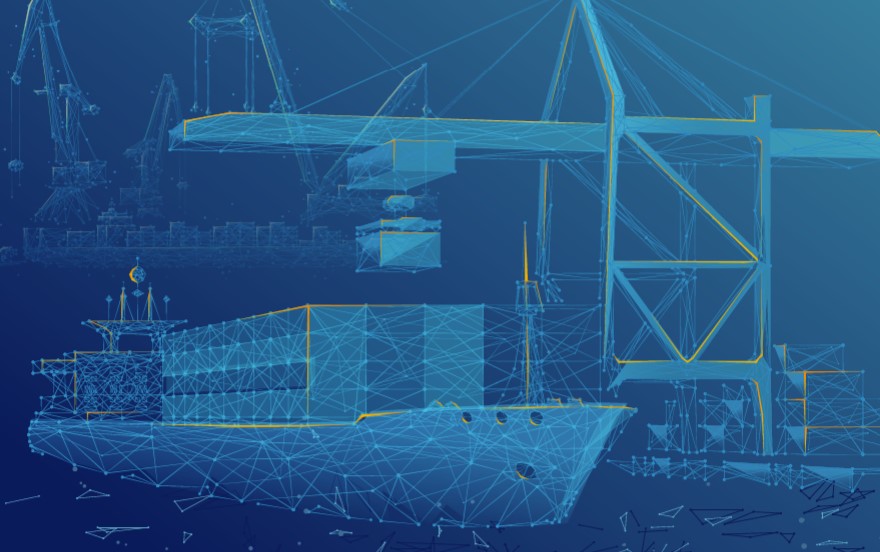
The emergence of the Port Community System (PCS). The PCS represents a pivotal development in the world of maritime trade facilitation and logistics. These sophisticated digital platforms enable seamless exchange of information, coordination, and collaboration among the port community stakeholders. By streamlining communication and automating data exchange, the PCS drives efficiency, transparency, and security in the complex ecosystem of global trade. As the volume of international trade continues to grow, the implementation of the PCS has become increasingly vital. This book digs into the complexities of these platforms and examines their roles in shaping the future of international trade and supply chain management.
Demystifying the concept, functionalities, and impact. Confusion surrounding the PCS concept and the limited understanding of its fundamental building blocks represents a significant challenge for both policy formulation and industry practice. Conversations with stakeholders from diverse backgrounds revealed a lack of clarity on the functionalities, benefits, and potential challenges associated with the PCS. These experiences highlighted the pressing need for a comprehensive resource that demystifies the PCS and provides practical guidance on their establishment, operation, and integration into existing port ecosystems. The aim of this study is to bridge the knowledge gap, share valuable insights, and contribute to the sustainable development of maritime trade facilitation and logistics through effective PCS implementation.
Contributing to the port digitalization knowledge base. The recent wave of port digitalization has accentuated the relevance of this study, making it a timely and critical contribution to global dialogue. This study stands out as an essential resource that aligns with and complements the efforts of international organizations such as the United Nations Conference on Trade and Development (UNCTAD), International Maritime Organization (IMO), World Customs Organization (WCO), and World Trade Organization (WTO) in promoting digital ports and trade facilitation. By building on the recent World Bank-International Association of Ports and Harbors (IAPH) report, “Accelerating Digitalization Across the Maritime Supply Chain”1 this publication not only demonstrates a clear understanding of the existing knowledge base, but also seeks to further expand it by providing valuable insights and recommendations.
The scope of this study. The complete PCS study includes a number of thematic chapters and case studies. We embark on a comprehensive exploration of the concept, evolution, and impact of the PCS in modern global trade. We delve into the strategies and best practices for implementing a PCS and examine the financial, governance, and legal aspects of their deployment. Central themes of our analysis include strengthening Customs-port collaboration and optimizing trade processes through PCS-enabled efficiencies. We also discuss the relationship with the trade and maritime single windows and provide tailored implementation guidance for Small Island Developing States (SIDS). Lastly, the book extends the principles of the maritime PCS to the Air Cargo Community System (ACCS) and explains how key learnings from one sector can benefit the other. This print publication summarizes the core concepts of PCS and serves as an introductory guide, with the remaining chapters and case studies available on the official World Bank website.
Leveraging the industry’s global expertise. We are deeply grateful to the industry experts, academic researchers, and policymakers for their invaluable contribution and support throughout the research and writing process. We are honored to have collaborated with the IAPH and with their affiliated PCS operators as co-authors, benefiting from their vast experience and knowledge. Special thanks are due to the International Port Community Systems Association (IPCSA) for their unwavering commitment to promoting innovative solutions for efficient, secure, and sustainable maritime trade, as well as providing constructive inputs into this book.
How to use this publication. We strongly encourage port, maritime and air industry senior executives and practitioners, international organization experts, government officials, and international consultants to explore the contents of this book. By engaging critically with this content, we hope that readers will emerge with a deeper understanding of the implications of PCSs on their own work and industry and find inspiration to explore new opportunities and approaches.
Candidate future analytics. The scope of this first attempt to cover the PCS fundamentals is de facto limited. In future editions, we hope to explore the evolving role of emerging technologies in enhancing PCS functionalities and capabilities, and techniques for analyzing big data generated by PCSs to support informed decision-making for port logistics and trade facilitation. Finally, we plan to delve deeper into the challenges and opportunities associated with potential contributions to reducing carbon footprints in support of green port initiatives.
Source: IAPH, World Bank
